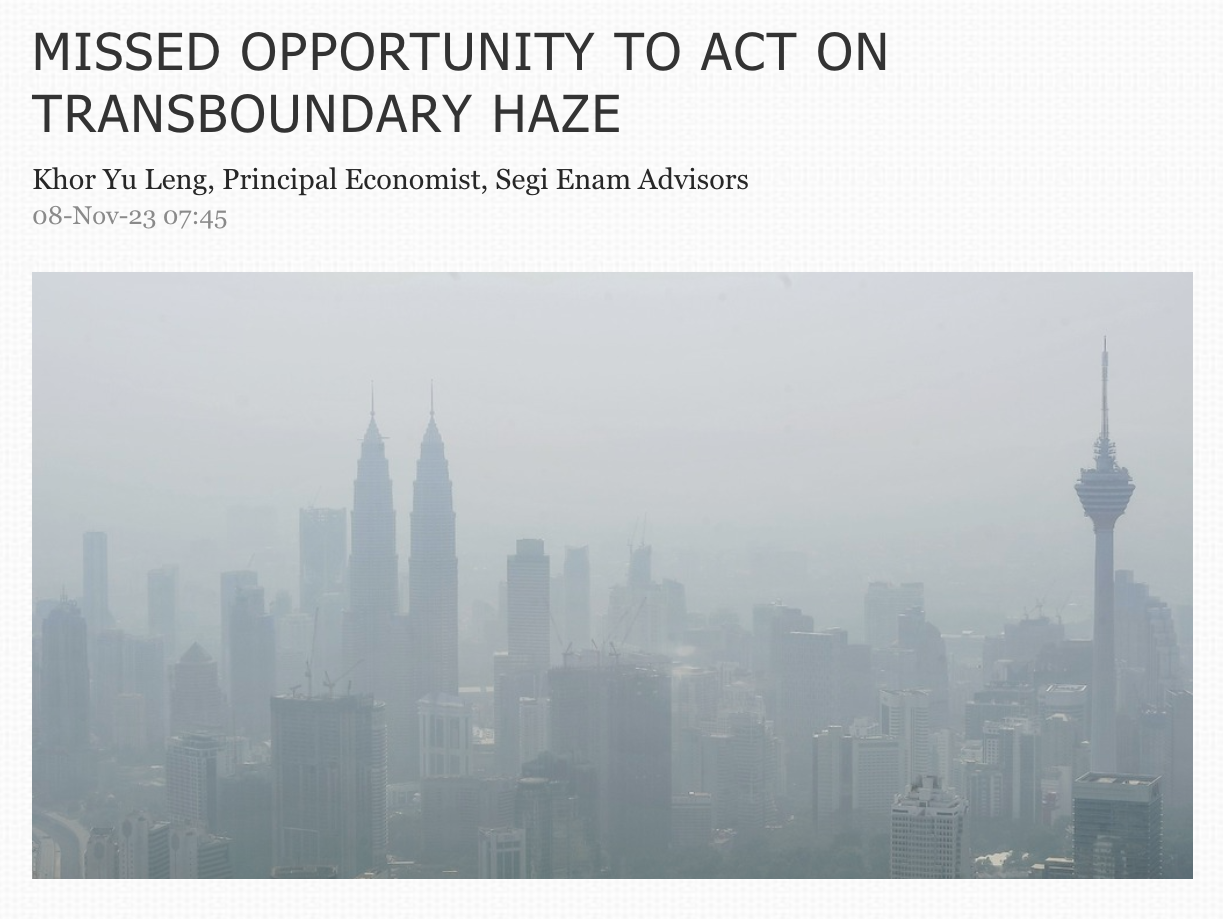By Claudia Nyon, Research Associate, research@segi-enam.com
Here’s a belated update on two BFM interviews back in August.
Yu Leng was on BFM’s Morning Run on 26 August 2024 to provide her insights on the increase of rubber prices against the impending implementation of the European Union’s Deforestation Regulation (EUDR). Yu Leng also considered the present challenges of smallholder producers of palm oil and rubber. The full podcast may be found here.
Key points included:
Malaysia’s rubber yield may sound low but specialists think that trees are overcounted. Thailand has faced challenging wet weather conditions and output is down but on the other hand Malaysia’s output is up. Malaysia’s ranking in global production is below.
Commodities are handled by different government agencies or statutory boards in Malaysia. There is one for palm oil, rubber, pepper and so forth. (Agronomists seem to complain about these as “silos”). Another complexity in rubber is that different zones have different farmer income models, notably for profit sharing or share cropping.
Rubber is largely produced in the northern states, where palm oil has not taken over these dryer regions. Smallholder experts think that (the true) rubber farmers needing help are individuals in remote areas. But domestically, there has been an understandable push for group farming (with hired/migrant labour) near towns. Perhaps a majority of rubber is produced under profit sharing, and this may need more consideration in current policy.
A few extra points that didn’t make it, owing to time constraints:
A near geographical monopoly concept exists and persists in Malaysian regulations. The ideal is a farmer having multiple mills to sell for then will there be better prices for a standard product. But mills have a clear incentive to partner with their smallholders for product quality and international ESG standards.
A lot can be gained from having information on the location of ultra low-yielding oil palms (“dura contamination” in industry parlance, where yields are -56% of normal yield). The Malaysian Palm Oil Board (MPOB) has invested a lot in detecting via genomic testing. Seeds can be verified for normal yield. There is a marginal cost increase for a major gain in production. One in eight oil palms in Malaysia are ultra low-yield, i.e., financially impaired. This is pretty surprising.
However, the industry needs to reconsider how they can expand these good practices from planting material all the way to harvesting and field logistics, and fairer prices.
Yu Leng was also invited to give her take on Malaysia’s latest pledge to halt new palm oil plantations in forested areas on BFM’s Top 5 at 5, on 19 August 2024. Deforestation regulations such as the EUDR were raised and how its shaking up global commodity supply chains with origins competing against each other to sell high value add products, however limiting land might cause liberal state development policies to clash against federal powers over exporting and licensing via the MPOB. The full podcast may be found here.
Editor’s Note: this clash between state and federal powers over the ban on new palm oil plantations in forested areas has recently materialised in the Kuala Nerus district, Terengganu. As reported by Malaysiakini in September (paywalled), Pure Green Development Sdn Bhd submitted an environmental impact assessment (EIA) to clear a state-owned peat swamp forest to develop a palm oil plantation. Following reports, the Department of Environment rejected Pure Green’s EIA (paywalled) and the Plantation and Commodities Minister, Johari Abdul Ghani, issued a statement (Bahasa Malaysia only) that the government’s bar against new palm oil plantations in forested areas still remains in force and referred to the Malaysian Sustainable Palm Oil (MSPO) certification policy.















